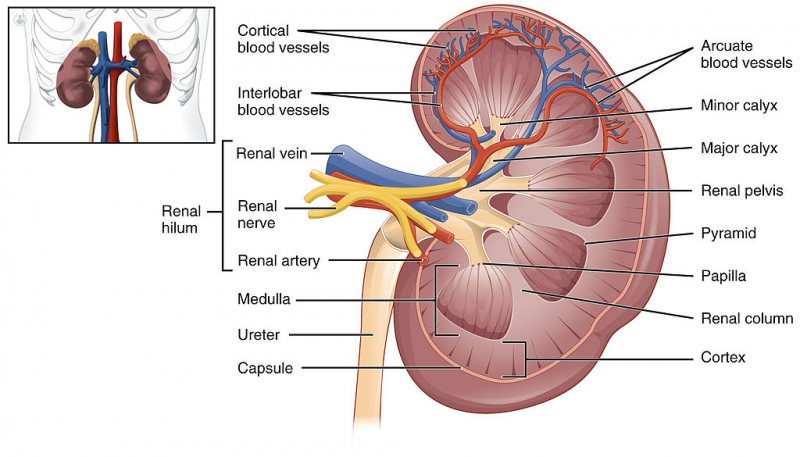


What is uremia?
Uremia (or uraemia) is a disorder of kidney function that occurs when the kidneys cannot properly remove urea from the body, so waste from urine accumulates in the blood and another series of diseases can occur.

What are the symptoms of uremia?
The main symptoms of this pathology are:
- asterixis (tremors)
- lethargy (prolonged drowsiness)
- hyperreflexia (increased osteotendinous reflexes)
- uremic flush (metallic and bitter taste in the mouth)
- serositis, especially pericarditis (inflammation of the tissue around the heart)
- hypothermia
- hypotension
- nausea and vomiting
- white or reddened tongue
What are the causes of uremia?
The main cause of uremia is kidney failure. Kidney failure can be acute or it can be chronic. Acute kidney failure generally follows a severe infection, significant blood loss, severe dehydration or sometimes from kidney stones blocking the drainage of urine from the kidneys. Chronic kidney failure can occur as a result of type 2 diabetes or polycystic kidney disease.
Rarer causes of kidney failure include a high protein diet, gastrointestinal bleeding, drug use, bladder rupture, dehydration or chronic pyelonephritis.
What is the treatment for uremia?
In some cases, if the uremia is due to excess protein or hypotension, it can be treated with a change in diet and prescribing drugs. However, this condition can be very serious, so it is usually treated with more invasive techniques:
- Dialysis: this consists of removing waste and excess fluid from the blood through the blood vessels around the walls of the abdomen.
- Kidney transplant: this consists of replacing the damaged kidney with a healthy one so that proper renal function is restored.